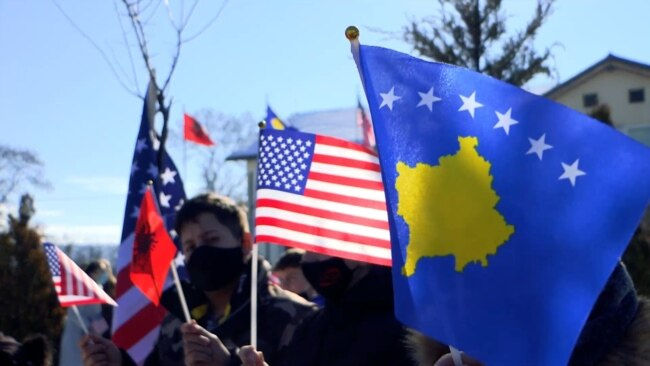Kosovo, Albania, and North Macedonia strategically welcome Afghan refugees
- Luke James

- Oct 12, 2021
- 4 min read
Updated: Oct 13, 2021
In a probable bid to boost international credibility, curry favour with the U.S., hasten their stalling accessions to the EU, and in Kosovo’s case further their aim of statehood recognition and NATO membership, the three western Balkan countries have begun welcoming U.S. bound Afghan refugees temporarily into their borders. Kosovar and Albanian leaders have publicly stated they are motivated for humanitarian reasons, a claim which may be true in part but disguises the greater strategic moves at play.
What are the facts?

On 18 Aug, Politico reported that Kosovo, Albania, and North Macedonia were the first EU countries to “provide temporary shelter for Afghans bound for the US”. According to Exit News, as of 16 Sep a total of 971 had arrived in Kosovo, 662 in Albania and 193 in North Macedonia.
France 24 had previously reported on 2 Sep that the Western Balkans countries may take up to 13,750 Afghan refugees, with Kosovo offering 10,000, Albania offering 3,000 and North Macedonia 750.
What have Kosovo, Albania and North Macedonia said?
Kosovo’s President Vjosa Osmani said in a WION interview that “helping Afghan refugees is her moral obligation”, and that “we are alive today because the world did not turn its back on us”. Kosovo’s Prime Minster Albin Kurti has also amplified Kosovo’s humanitarian and professional nature in hosting Afghan refugees.
“We are alive today because the world did not turn its back on us”
Albanian’s Prime Minister Edi Rama penned an emotive article on 30 Aug entitled NATO’s Responsibility to Save Afghans where he said, “to fail to act now would mean to turn our backs on our own history”, later adding “they can stay as long as they want”. President Ilir Meta has been notably silent, however.
North Macedonia’s Foreign Affairs Minister Bujar Osmani tweeted “it is a humanist act but also our obligation to provide these people a safe harbor”, with Prime Minister Zoran Zaev recognising “a possible humanitarian catastrophe" but assisting “in accordance with our capabilities and needs” making it clear the financial implications would be “fully covered by the U.S”. As in Albania however, the country’s president Stevo Pendarovski has been quiet on the issue, only telling people to expect a new wave of Afghan refugees in the Balkans soon.
Why have they said this?
All three countries are trying to boost international credibility, particularly with the most influential NATO partner, the United States. Toby Vogel at Berlin-based think-tank Democratisation Policy Council was quoted in Politico as saying “these three are the most pro-American countries in Europe”. As Kosovo’s President Osmani will recall, it was the U.S. that led the NATO bombing campaign against Yugoslavia that led to Serbia’s withdrawal
It was also the U.S. that led the efforts at NATO to expand membership to Albania and very recently to North Macedonia.

Kosovo’s adherence to U.S. policy was shown last year when former President Trump secured Kosovar’s recognition by Israel in exchange for moving the Kosovar embassy to Jerusalem. In an interview with Al Jazeera, Prime Minister Albin Kurti said regarding their relationship with the U.S. “we don’t ask why, we just say how”.
Exasperation with stalled EU accession likely also plays a role in the decision to welcome the refugees. Kosovo has not joined the Serbian-led Open Balkans initiative, implying in an interview with Olobodenje that it may conflict with the EU-supported Berlin Process, and slamming it as an “opening to autocracy”. Albanian PM Rama and North Macedonian PM Zaev appear to be putting pressure on the EU to join the initiative, saying that “until the EU decides, we need to find ways to continue the process of Europeanisation”. Bloomberg reports that Russian regional favourite Serbia, who has actively tried to prevent Kosovo from joining regional organisations, “today is not enthusiastic to join the EU” and leads the Open Balkans initiative, believing “it is time to take matters into our own hands”.
What strategic aims are they seeking to achieve?
The three countries are looking to boost their international credibility, particularly with the U.S and NATO. Despite Albania’s domestic issues and North Macedonia’s language spat with Bulgaria presenting additional hurdles to membership, the countries are still hopeful, though their recent decisions to join the Open Balkans initiative speaks of some resignation. Kosovo has voiced despair, saying “some EU member states are depriving Kosovo citizens and businesses of free movement and trade”, but remains more optimistic and focused on EU accession.
Separately, there may be a negotiating angle that the three Balkan countries could take. They could demand accelerated EU membership or threaten facilitating a “looming refugee crisis” into the EU as recently warned by the Times and North Macedonian President.
Either way they are likely to continue accepting Afghan refugees on a temporary basis, in large part motivated by their strategic aims. While the leaders’ respective domestic audiences have thus far been generally tolerant of the Afghan arrivals, managing public sentiment will be the primary political restriction for these leaders in how far they go with the program. The three country’s decisions to take the Afghan refugees will bank some political goodwill, helping them in the longer term to achieve their strategic aims.
Written by Luke James
Edited by Owen Swift
.jpg)






